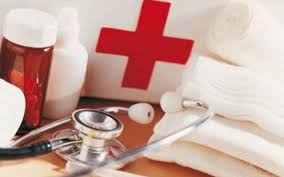Legal regulation of medical and pharmaceutical law
Introduction
Medical and pharmaceutical law are important branches of the legal system that regulate relations in the field of healthcare and the provision of medicines to the population. This includes the regulation of medical practice, patients' rights, quality control of medicines and medical services, as well as ethical and safety issues.
Fundamentals of medical law
Legal status of healthcare workers
Medical law regulates the activities of medical professionals, including their rights and obligations:
- Licensing and accreditation: healthcare professionals must obtain appropriate licenses and certificates to practice medicine.
- Professional liability: healthcare professionals are responsible for their actions and decisions, including the possibility of disciplinary, administrative or criminal liability in case of violation of professional standards.
Patients' rights
Patients' rights are a central element of health law and include:
- The right to informed consent: patients have the right to receive full information about their health status, treatment methods and possible risks, as well as to give consent to treatment.
- Right to confidentiality: healthcare professionals are obliged to keep patient information confidential.
- The right to quality medical care: patients have the right to receive medical services of appropriate quality.
Ethical aspects of medical activity
Medical law also regulates the ethical aspects of medical practice, including:
- Euthanasia and assisted suicide: issues of legal regulation and ethics of euthanasia.
- Reproductive rights: legal aspects of providing assisted reproductive technologies and surrogacy.
Fundamentals of pharmaceutical law
Regulation of medicines
Pharmaceutical law regulates the circulation of medicines, including:
- Registration of medicinal products: before entering the market, medicinal products must undergo a registration procedure, which includes clinical trials and safety assessment.
- Quality control: ensuring that medicines meet established quality standards.
Licensing and accreditation of pharmaceutical companies
Pharmaceutical companies must obtain appropriate licenses to carry out their activities, including:
- Manufacturing of medicines: licensing of manufacturing enterprises, control over compliance with GMP (Good Manufacturing Practice) standards.
- Wholesale and retail trade: licensing of distributors and pharmacies.
Advertising and marketing of medicines
Pharmaceutical law regulates the advertising and marketing of medicines, including:
- Ethical standards of advertising: advertising of medicinal products must be truthful, not misleading and comply with ethical standards.
- Prohibition on advertising of prescription drugs: advertising of prescription drugs is generally prohibited for the general audience, except for specialized medical publications.
International regulation
World Health Organization (WHO)
WHO is the key international health authority, setting global standards and guidelines for medical and pharmaceutical practices.
European Medicines Agency (EMA)
The EMA oversees the safety and efficacy of medicines used in the European Union. The main functions of the EMA include:
- Evaluation and registration of medicinal products: The EMA conducts expert evaluation of medicinal products to issue a single European marketing authorization.
- Pharmacovigilance: monitoring the safety of medicines after they enter the market and managing the risks associated with their use.
- Harmonization of standards: development of recommendations and standards for industry and the scientific community.
International Conference on Harmonization of Technical Requirements for Registration of Medicinal Products for Human Use (ICH)
The ICH is an important platform for cooperation between regulatory authorities and the pharmaceutical industry to harmonize the requirements for registration of medicines. The main activities of the ICH include:
- Harmonization of scientific and technical standards: development of internationally agreed guidelines for the quality, safety and efficacy of medicines.
- Improving the efficiency of regulatory processes: promoting more efficient and predictable registration and supervision of medicines.
Challenges and issues
Quality and safety control of medicines
Ensuring the quality and safety of medicines is a key challenge in pharmaceutical law. This includes monitoring compliance with manufacturing standards, conducting clinical trials and monitoring side effects. You may be interested in the following articles: legal advice, legal advice, legal analysis of the situation, written advice, verification of documents by a lawyer, lawyers documents, online legal advice, online lawyer, legal opinion, legal opinion of a lawyer, lawyer online.
Fight against counterfeiting
The problem of counterfeit medicines is a serious threat to public health. Various measures are used to combat counterfeiting:
- Legislative initiatives: adoption of laws providing for severe penalties for the production and distribution of counterfeit medicines.
- Technological solutions: implementation of tracking and verification systems for medicines.
Ethical issues
Ethical issues remain an important aspect of medical and pharmaceutical law. This includes:
- Clinical trials: ensuring ethical standards in clinical trials, including informed consent of participants and fair distribution of risks and benefits.
- Access to medicines: ensuring equal access to essential medicines for all categories of the population, including vulnerable groups.
Conclusion.
The legal regulation of medical and pharmaceutical law is extremely important for ensuring the quality and safety of medical services and medicines. It covers a wide range of issues, from the legal status of healthcare professionals and patients' rights to the regulation of the production and circulation of medicines. International cooperation and harmonization of standards play a key role in ensuring effective regulation and addressing global challenges in this area.

































